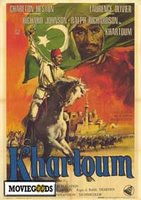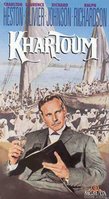Index to series appears at the bottom of the post. AHA (see also Hoffer)
10/3/2003, 11/19/04, 1/7/05, 1/18/05, 2/8/05, 3/10/05, 3/11/05, 4/29/05
ALPLM
9/19/03, 6/24/04, 7/8/04, 7/16/04, 7/26/04, 10/27/04, 12/1/04, 12/27/04, 1/4/05, 1/20/05, 3/28/05, 4/11/05, 4/12/05, 4/18/05, 4/19/05, 4/26/05, 4/28/05, 5/19/05, 6/24/05, 7/7/05, 7/14/05, 8/15/05, 10/11/05, 12/11/06
ALPLM and Richard Norton Smith
9/30/06, 10/6/03, 10/9/03, 10/10/03, 11/26/03, 12/18/03, 2/4/04, 2/6/04, 2/10/04, 2/12/04, 3/1/04, 3/17/04, 3/18/04, 3/22/04, 4/14/04, 6/4/04, 6/15/04, 8/24/04, 10/6/04, 12/1/04, 2/14/05, 2/18/05, 12/6/05, 2/16/06, 2/17/06
ALPLM and Rick Beard
10/30/06, 10/31/06, 11/25/06, 12/18/06
APSA
12/16/05
Absenteeism (Rebel)
12/26/03, 6/29/06, 7/3/06
Absenteeism (Union, see also “Numbers and Losses”)
11/17/03, 6/2/04
Albert (chess master)
10/26/04
Alito (jurist)
1/12/06
American Heritage (magazine)
9/20/05, 6/23/06, 7/4/06
Aubrecht (blogger)
2/3/06, 2/14/06,
Ayers (author)
8/19/05, 9/16/05, 10/5/05, 10/17/05, 11/2/05, 1/20/06, 2/3/06, 4/3/06
Ball’s Bluff (battle)
1/20/06
Banks (general)
5/31/06
Baseball - ACW
3/31/05, 4/4/05, 5/17/05
Battlefield guides
9/1/03
Baudrillard (philosopher)
10/14/04, 10/15/04, 10/18/04, 2/11/05, 9/8/05
Bearss (author)
8/17/05
Beatie (author)
10/8/03, 11/10/04, 11/11/04, 1/4/05, 1/5/05, 3/22/05, 3/30/05, 3/31/05, 4/6/05, 4/28/05, 5/9/05, 9/12/05, 10/18/05, 4/14/06, 5/17/06, 6/28/06, 8/12/06, 8/18/06, 9/17/06, 10/12/06, 11/03/06, 11/19/06, 12/19/06
Benko (chess master)
11/18/05, 11/21/05
Bierce (author)
6/9/04, 1/10/05, 5/16/05
Bloch
11/11/03
Blogs of the ACW
5/21/04, 12/6/04, 2/1/05, 2/24/05, 3/11/05, 3/17/05, 6/27/05, 9/6/05, 10/7/05, 11/30/05, 1/16/06, 3/13/06, 3/21/06, 5/19/06, 7/17/06, 9/21/06, 9/25/06, 10/12/06, 11/10/06, 11/14/06, 11/17/06, 12/20/06
Blunt (general)
12/11/05, 12/12/05
Bonekemper (author)
5/12/04, 8/22/05, 4/18/06
Boritt (author)
2/16/04, 10/30/06, 12/5/06
Boyd (military theorist)
6/28/04, 10/1/04, 5/6/05, 6/6/05, 7/8/05
Brady (photographer)
1/23/06, 10/18/06
Brautigan (author)
1/20/06,
Brooks (author)
4/18/06, 4/20/06
Brooksher (author)
5/9/06, 5/22/06
Brown (author)
7/11/05
Brown (revolutionary)
11/25/03, 8/18/04
Buchanan (president)
5/5/05, 7/26/05
Buchanan’s “Public Man”
7/26/05
Buell (author)
9/21/05
Buford N (general)
10/13/05, 10/14/05
Bundy (author)
2/27/06
Bunting (author)
11/24/04, 8/22/05, 4/18/06
Burns (TV producer)
9/16/05, 10/5/05, 10/27/06
Burnside (general, see also “Sprague”)
11/5/03, 1/29/04, 2/4/04, 12/6/04, 2/1/05, 8/2/05
Burton (author)
7/4/06
Butler (general, see also Robertson)
11/10/04, 8/4/05, 1/4/06, 10/18/06
Butterfield (philosopher)
9/26/05, 9/27/05
Butternut & Blue (publisher)
10/7/03
CSA (movie)
12/3/03, 3/2/05, 9/16/05, 10/10/05, 8/2/06, 10/1/06
C-SPAN
8/16/04
CVBT
12/22/05,
CWPT
3/2/04, 3/3/04, 3/4/04, 3/5/04, 3/6/04, 3/7/04, 3/10/04, 3/16/04, 4/6/04, 4/7/04, 4/8/04, 6/4/04, 8/13/04, 9/22/04, 9/24/04, 1/11/05, 1/12/05, 2/22/05, 2/24/05, 2/25/05, 3/17/05, 4/1/05, 4/27/05, 4/29/05, 5/5/05, 11/15/05, 12/12/05, 12/30/05, 1/31/06, 2/15/06, 2/21/06, 3/1/06, 3/8/06, 6/21/06, 9/29/06
Carhart (author)
4/28/05, 11/22/52
Catton (author)
9/22/04, 11/11/04, 12/13/04, 12/14/04, 4/29/05, 5/5/05, 3/16/06, 5/31/06
Causes of the ACW
12/9/03
Cavalry doctrine (see also series)
1/17/05, 1/4/06, 8/28/06
Centennialism (also Nevins, Catton, Williams, McPherson, et al)
9/10/03, 9/12/03, 4/12/05, 1/20/06, 6/20/06, 7/4/06
Chamberlain (general)
2/4/04, 6/3/06
Cheney (veep)
1/26/04, 5/13/04
Citations, electronic media
4/7/06, 9/7/06
Clark (politician) as McClellan
10/1/03, 10/2/03, 10/28/03, 3/30/04, 11/2/04, 8/24/05
Clay (Whig)
6/11/04
Clemens (author)
4/22/04, 5/11/05
Cline (blogger)
9/3/03, 9/4/03, 9/22/04, 5/25/05
Clinton (author)
11/22/05
Cold Mountain (movie)
10/30/03, 12/11/03, 12/16/03, 12/17/03, 12/18/03, 12/21/03, 12/24/03, 12/25/03, 12/29/03, 2/6/04, 2/10/04
Collier (author)
7/6/04
Comments, blog
4/28/06
Comte de Paris, diary
9/8/06
Confederate flags
10/14/03, 11/25/03, 12/4/03, 2/24/04, 8/26/04, 9/3/04, 9/7/04
Conflicts of interest (authors)
2/25/04, 2/26/04, 2/27/04
Connelly (author)
5/18/06, 6/27/06, 6/28/06, 11/3/06
Constitution (“pact with hell”)
9/29/05
Contingency, historical
4/14/05, 4/16/05, 1/23/06, 1/24/06, 2/9/06
Cormack (blogger)
5/24/05, 7/8/05, 9/19/05
Cotton trading (illegal, see also Sprague, Chase, McDowell)
5/19/04, 6/22/04, 7/21/05, 9/12/06
Cramer (blogger)
10/5/05
Crampton’s Gap (see also Reese)
10/6/03, 1/14/04, 3/30/04, 4/30/04, 8/25/05, 12/8/04, 1/6/05, 1/20/05, 2/14/05, 2/15/05, 2/16/05, 6/13/05, 12/15/05, 1/6/09, 1/13/06, 1/18/06
Crane (author)
2/18/04
Cricket (American game)
8/23/05
Crimean War (see also Moten and “Cavalry Doctrine” series)
4/21/04
Cross (bolgger)
9/30/05
Cult of celebrity
10/23/03
Custer (general)
4/11/05
Dail (blogger)
3/27/06, 9/21/06
Darien (GA)
5/29/06, 5/30/06
Davis (author)
12/21/04, 5/25/05, 3/1/06, 8/7/06
Davis (secwar, see also series on “Cavalry Doctrine”)
1/17/05, 1/19/05, 8/28/06, 8/30/06
Davis (rebel)
9/7/05, 9/8/05
Decoration Day
5/31/04, 5/30/05
Denikin (general)
10/4/05
Dennison (governor)
11/24/03,
Desjardin (author)
12/8/03, 9/19/05, 10/24/05, 11/29/05
Detzer (author)
11/11/04, 8/7/06, 10/8/06
Dirck (blogger)
2/13/06
Doctorow (author)
8/17/05, 9/21/05, 4/17/06
Donald (author)
12/16/03, 3/26/04, 5/3/04, 9/12/05, 9/16/05, 5/5/06
Donizetti (composer, see also “Music”)
11/16/04
Doubleday (general)
8/24/06
Downey (blogger)
4/1/06, 8/30/06, 9/8/06, 9/22/06, 10/30/06
Economics and business of ACW
12/7/04, 7/13/05, 7/24/06, 7/31/06
Eicher (author)
8/11/05, 4/24/06
Eicher and Eicher (authors)
12/12/05, 2/7/06,
Emerson and Sumner
1/3/06
Ericsson (naval architect)
9/26/05
Fishel (author)
10/31/06
Fischer (author)
12/16/03, 9/15/04, 9/16/04, 9/17/04, 9/20/04, 9/21/04, 12/20/04, 8/25/05
Fitness
9/20/05, 9/30/05
Fleming (author)
6/28/04, 7/13/04
Foote (author)
11/25/03, 11/11/04, 12/9/04, 5/17/05, 6/29/05, 6/30/05, 7/13/05, 7/18/05, 7/21/05, 7/25/05, 8/5/05, 8/16/05, 9/29/05, 4/4/06
Ford’s Theatre
6/25/04
Franco-Prussian War
2/4/04
Franklin (general – see also Snell)
6/30/06
Fulgham (author)
10/12/05
Gallagher (author)
11/20/03, 2/9/04, 3/12/04, 7/23/04, 12/21/04, 3/28/05, 4/11/05, 4/27/05, 8/5/05, 9/12/05, 6/11/06, 7/26/06
Garfield (president)
1/21/05, 8/12/05
Gettysburg (address)
11/8/06, 11/9/06
Gettysburg (casino)
5/2/05, 5/16/05, 5/31/05, 10/5/05, 11/8/05, 4/6/06, 12/21/06
Gettysburg (movie)
7/30/04, 6/10/05
Ghosts
10/31/03
Gingrich and Forstchen (authors)
6/23/04, 7/5/04, 8/10/05, 4/20/06
Glasgow (author)
12/1/03
Glory (movie)
7/30/04
Gods and Generals (movie)
7/30/04
Goodwin (author)
9/20/04, 1/24/05, 7/12/05, 8/03/05, 8/19/05, 9/12/05, 9/30/05, 10/20/05, 10/25/05, 11/1/05, 11/16/05, 11/18/05, 11/28/05, 2/13/06
Goodwin (movie)
6/23/05, 7/12/05
Goss (author)
8/28/03, 9/21/03, 5/7/04, 12/17/04
Grant (general)
5/13/04, 9/20/04, 9/29/04, 11/24/04, 11/29/04, 2/3/05, 4/27/05, 5/2/05, 5/3/05, 5/5/05, 8/19/05, 9/14/05, 9/30/05, 1/2/06, 5/31/06, 12/19/06
Graves (author)
9/21/04, 9/22/04
Griffith (author)
2/9/06
Grimsley (author)
4/8/04, 8/11/04, 2/2/05, 2/3/05, 2/23/05, 2/24/05, 3/11/05, 3/17/05, 5/3/05, 5/20/05, 7/14/05, 8/4/05, 8/16/05, 8/18/05, 8/25/05, 9/9/05, 9/15/05, 11/6/05, 3/21/06, 5/31/06, 9/8/06, 10/12/06, 10/22/06, 11/14/06, 11/17/06
Grombowicz (author)
2/10/05, 2/11/05
Guelzo (author)
5/20/04, 6/3/04, 12/9/04, 4/22/05
Hackworth (military analyst)
5/23/05
Hagerman (author)
11/7/05
Hagmaier (blogger)
5/24/05, 5/27/05, 6/1/05, 6/9/05, 7/20/05, 2/9/06, 2/10/06,
Halleck (general: see also “Marszalek”)
11/30/04, 6/1/05, 6/2/05, 6/3/05, 6/6/05, 6/16/05
Handlin (historian)
1/23/06
Hanson (author)
4/28/04
Hardeee (general)
8/30/06
Harsh (author)
4/15/05, 5/2/05, 6/28/06, 10/31/06
Hartwig (historian)
8/26/04
Hats (military)
12/11/05, 12/14/05
Hattaway (author)
3/15/04, 4/22/04, 2/22/05, 8/9/06, 12/4/06
Heintzelman (general)
8/12/06, 9/15/06
Helmets (McClellan)
3/9/05
Helmets (McDowell, see also helmet series)
9/11/06
Hennessy (historian)
6/30/04, 3/28/05, 7/8/05, 9/13/06
Heritage tourism
10/24/03, 10/29/03, 10/30/03, 11/05, 11/19/03, 12/12/03, 1/28/04, 1/30/04, 2/3/04, 3/16/04, 3/19/04, 3/21/04, 3/30/04, 4/9/04, 4/29/04, 7/1/04, 8/20/04, 10/18/04, 2/25/05, 3/8/05, 3/10/05, 4/20/05, 5/16/05, 5/18/05, 9/22/05, 12/1/05, 6/21/06, 7/16/06, 7/18/06, 8/4/06, 8/8/06, 8/16/06, 10/4/06, 12/6/06, 12/11/06, 12/22/06
Hicks (author)
8/29/05, 8/30/05
Hindemith (composer)
4/29/04
Historical markers
9/11/03
Historical time
2/19/04, 10/11/06
History (curriculum)
12/9/03, 1/26/04, 3/26/04, 4/14/04, 5/14/04, 10/15/04, 3/15/05, 5/18/05, 6/8/05, 5/16/06, 12/1/06
History (ethics)
10/3/2003, 3/10/05, 3/11/05, 3/17/05
History and evidence
10/21/03, 6/14/04, 6/15/04, 1/27/05
History via punditry
9/8/2003, 8/18/05, 8/23/05, 8/24/05, 7/17/06, 12/27/06
Hobsbawm (author)
6/5/06, 6/6/06
Hoffer (author)
9/20/04, 10/25/04, 11/15/04, 11/19/04, 12/30/04, 2/1/05, 5/3/05
Hood (general)
11/17/04, 5/31/06, 10/17/06
Howard (general)
5/26/06, 5/27/06
Hyperreality
See Baudrillard
Ingram (wholesaler)
12/10/04, 8/18/05,
“Iron Brigade”
1/22/04
Ironclads
11/4/03, 3/22/05, 3/24/05, 5/3/05, 6/8/05
Jack (ACW ripper)
7/26/04
Jaffa (author)
2/16/04, 5/20/05
James (thief)
9/13/04
Johnson (president)
12/28/04
Johnston J (general, see also “Cavalry Doctrine”)
8/28/06, 8/30/06, 10/8/06, 10/31/06
Jomini vs. Clausewitz
3/29/04, 12/2/05, 12/6/05
Jones (author)
11/5/04, 2/22/05, 4/15/05, 8/9/06, 11/03/06
Juneteenth
1/2/04, 6/22/04
Kearny (general, see also Styple)
10/17/06, 11/9/06
Keegan (author)
11/28/03
Kelly (sculptor)
See Styple
Keyes (general)
8/18/06
Keyes (politician)
8/23/04
Koepke (blogger)
9/9/05
Korda (author)
11/24/04, 7/15/05, 8/22/05, 4/18/06
Lander (general)
1/5/05
Larabee (author)
8/18/05, 9/22/05, 1/5/06
Lasker (chess master)
5/18/06
Last Full Measure (movie)
7/30/04, 10/6/04, 7/24/06
Last Samurai (movie)
11/10/03, 12/5/03
Law and Supreme Court
10/27/03, 11/3/03, 2/17/04
Le Carre (author)
12/21/05
Lee (general)
5/12/04, 8/2/04, 9/22/04, 11/9/04, 10/14/05, 1/20/06, 10/31/06
Leech (author)
2/4/05, 3/14/05
Lehrman (philanthropist)
8/24/04
Levin (blogger)
11/30/05, 1/16/06, 2/8/06, 4/3/06, 4/4/06, 10/31/06
Limbaugh (radio host – see also “Clark”)
8/24/05
Lincoln (advertising)
1/28/04, 2/22/05, 9/12/06, 9/15/06
Lincoln (assassination)
8/24/04, 12/9/04, 4/5/05, 9/21/05, 1/3/05
Lincoln (corpse)
11/6/03
Lincoln and Declaration (see also “Keyes, politician” and “Constitution”)
8/23/04, 8/24/04
Lincoln (gay)
9/18/03, 12/23/04, 1/18/05, 2/16/05
Lincoln impersonators
1/28/04, 3/23/04
Lincoln Institute
8/24/04
Lincoln (legends)
5/3/05, 10/22/06
Lincoln as Maguffin
1/31/05, 2/7/05, 3/3/05
“Lincoln/McClellan Syndrome”
6/17/05
Lincoln (opponents)
10/13/04, 3/2/05
Lincoln (property, see also series “Social Identity”)
2/14/05
Lincoln (psychology)
9/22/05, 3/27/06, 5/5/06
Lincoln Prize (see also “Borrit”)
2/13/04, 2/13/06, 2/27/06
Lincoln voice recordings/speeches
7/12/04, 7/21/08, 1/12/05
Lincoln (war powers)
7/23/06
Lind (military analyst)
10/1/04, 5/6/05, 7/8/05
Livermore (historian)
See “Numbers and Losses”
Local historians
11/13/03, 11/27/03, 3/31/04, 8/2/06
Longstreet (general)
8/7/06
Loring (general)
9/20/05
Lost Order
7/23/04, 9/22/04, 9/25/04
Lost Cause (see also “Lost Cause” series)
6/5/06, 6/6/06, 6/11/06
Lowry (author)
10/27/03, 2/17/04, 1/25/06
Lukacs (author)
4/16/04
Luker (historian)
8/4/05, 10/5/05
Mandelbrot (mathematician)
3/23/05, 4/15/05
Marquand (author)
8/1/06
Marvel (author)
4/28/04, 9/4/06, 11/14/06, 11/17/06
Marszalek (author)
11/30/04, 6/1/05, 6/2/05, 6/16/05
Marx and Engels (revolutionaries)
10/28/03, 6/3/04
Maxwell (filmmaker)
6/9/04, 7/30/04, 10/6/04, 1/20/06, 2/8/06, 3/22/06, 7/24/06, 8/22/06
McClellan, Dr. G
1/2/06
McClellan (lost telegram date)
2/26/04
McClellan and Jackson
5/5/04, 5/10/04
McClellan, Max
1/2/06
McClellan poetry
3/13/04, 3/20/04, 3/27/04, 4/3/04, 4/4/04, 4/10/04, 4/17/04, 4/24/04, 5/1/04, 5/8/04, 5/15/04, 5/22/04, 5/29/04, 6/5/04, 6/12/04, 6/17/04, 6/20/04, 6/26/04, 7/3/04, 7/10/04, 7/17/04, 7/24/04, 7/31/04, 8/8/04, 8/15/04, 8/21/04, 8/28/04, 9/4/04, 9/11/04, 9/18/04, 10/2/04, 10/16/04
“McClellan Rangers”
8/3/05, 8/4/05, 8/8/05
McClellan replacements (notional)
10/13/05, 10/31/05,
McLuhan (media analyst)
1/17/06, 4/4/06
McCullough (author)
9/12/05
McDonald (author)
12/6/04
McDowell (general, see also “Helmets” series)
12/12/05, 12/15/05, 8/9/06, 9/11/06, 9/12/06, 9/13/06, 9/17/06
McDowell (colonel)
9/12/06, 9/13/06
McDowell (paymaster)
See “Cotton Trading”
McFeely (author)
2/23/04, 2/24/04, 8/22/05, 9/12/05
McMurry (author)
5/24/04
McPherson (author)
12/13/04, 12/15/04, 2/23/05, 3/28/05, 5/3/05, 8/29/05, 9/16/05, 10/24/05, 11/2/05, 4/27/06, 6/23/06, 7/4/06, 11/7/06, 12/22/06
McPherson (illustrated Battle Cry)
9/11/03, 11/14/03
McPherson (celebrity)
1/12/2004, 2/9/04, 2/11/04, 2/12/04, 3/15/04, 4/8/04, 4/28/04, 5/21/04, 9/20/04, 10/5/04, 11/11/04, 12/2/04, 12/3/04, 2/15/05, 5/6/05, 6/14/05, 8/1/05, 8/3/05, 8/5/05, 8/8/05, 8/19/05, 8/25/05, 9/15/05, 9/22/05, 10/5/05, 11/22/05, 12/2/05, 12/7/05
Meade (general)
5/31/06
Meigs (general)
6/30/06, 9/13/06
Medicine (ACW)
8/12/05, 11/28/05, 4/24/06
Mexican War vets
2/19/04
Military history
8/11/04, 1/13/05, 9/20/06, 10/12/06, 10/22/06
Military reform (see also Boyd, also series)
6/28/04, 5/6/05, 7/8/05, 9/14/05, 11/28/05, 2/9/06, 6/23/06
Military science
11/3/03, 1/20/04, 7/2/04, 10/1/04, 10/26/04, 11/5/04
Miller R (author)
8/24/04, 8/26/05, 10/20/05, 10/25/05, 12/10/05, 2/24/06, 4/4/06
Von Moeltke (general)
4/26/06
Montgomery (author)
1/3/06
Morningside books
9/17/03, 1/15/06
Morphy (chess master, see also “Scott”)
7/2/4, 9/16/04
Morton (governor)
11/24/03
Mosier (author)
12/13/04, 1/26/05
Moten (author – see “Cavalry Doctrine” series)
9/7/06
Mozart
9/3/04
Mummers
1/2/04, 1/1/05
Music of the ACW
2/20/04, 4/13/04, 4/14/04, 4/18/04, 4/26/04, 5/24/04, 5/25/04, 7/23/04, 9/3/04, 11/16/04, 3/7/05, 3/8/05, 11/1/05, 7/16/06
Muslims and the ACW
9/8/04, 9/14/04
NPS
8/29/03, 9/9/03, 9/19/03, 9/29/03, 10/7/03, 10/22/03, 12/4/03, 1/21/04, 3/10/04, 6/29/04, 2/4/05, 5/26/05, 7/1/05, 7/20/05, 9/7/05
Naglee (general)
10/22/04
Navies of the ACW
10/20/03, 11/4/03, 12/2/03, 3/8/04, 3/29/04, 3/22/05, 3/24/05, 5/3/05, 6/8/05, 8/5/05, 5/12/06, 7/30/06
Neely (author)
11/29/05, 1/25/06, 5/18/06, 6/20/06, 6/26/06, 6/28/06
Nevins (plagiarism)
12/23/03
Nevins (author, see also “Centennialism” and “American Heritage”)
1/16/04, 11/11/04, 11/24/04, 12/13/04, 1/23/06, 6/23/06, 7/4/06
New paradigms
10/15/03, 3/28/05, 4/7/05
Newton (author)
3/28/05
Nolan (author)
1/22/04, 6/11/06
Nosworthy (author)
3/4/05, 3/23/05, 3/24/05, 3/28/05, 4/7/05, 4/15/05, 2/9/06,
Nous
4/25/06
Numbers and losses (see also series “Numerolgy”)
11/17/03, 9/7/04, 10/27/04, 10/29/04, 11/3/04, 1/3/05, 6/7/05, 6/28/05, 6/26/06, 10/1/06, 10/3/06, 10/5/06, 10/8/06, 10/9/06, 10/23/06, 10/25/06, 10/26/06, 10/30/06, 10/31/06
OAH
8/4/05
Olcott (ACW Buddhist)
8/2/05
Olmsted (landscaper)
9/13/05
POW
6/10/04
Painting the ACW
10/13/03, 10/24/03, 7/1/04, 8/16/04, 10/19/04, 11/9/04, 6/2/05, 6/17/05, 4/17/06
“Parasocial relationships”
7/29/05,
Patterson (general)
10/29/04, 11/12/04, 9/7/05
Perrett (author)
3/22/05, 4/26/05
Perry (author)
8/22/05
Pershing (general)
6/28/04, 11/10/06
Phillips (author)
6/24/05, 7/25/05
Pinkerton (detective; see also “Numerology” series)
10/16/03, 8/23/06
Plagiarism
9/14/04, 9/27/04, 9/28/04, 10/1/04, 10/4/04, 10/8/04, 1/6/05, 2/8/05, 3/10/05, 4/27/05, 4/29/05, 5/2/05, 5/3/05, 5/5/05, 5/9/05, 5/13/05, 7/21/05, 8/4/05, 10/5/05, 11/18/05, 9/15/06, 9/22/06, 11/14/06, 11/15/06, 12/7/06, 12/8/06
Pleasanton (general)
11/21/06, 11/22/06
Pohanka (author)
10/30/03, 6/20/05, 8/4/05, 9/30/05, 3/14/06,
Polk (president)
9/15/04, 1/3/06
Political generals (see also “Goss”)
5/11/04, 5/13/04
Pop history
11/23/04, 5/10/05, 5/19/05, 5/20/05, 5/31/05, 6/21/05, 8/1/05, 9/15/05, 11/7/05, 12/21/05, 1/3/06, 6/23/06, 12/28/06
Pop history (master narrative)
8/27/03, 9/3/03, 9/4/03, 4/29/04, 8/4/04, 9/22/04, 5/11/05, 6/25/05, 7/7/05, 9/27/06, 12/27/06
Popper (philosopher)
1/12/06, 6/5/06, 6/6/06
Porter (general)
11/21/06
Poulter (editor)
5/13/05, 10/3/05
Preservation
3/24/04, 3/25/04, 4/2/04, 4/5/04, 4/12/04, 4/22/04, 5/6/04, 7/9/04, 7/15/04, 8/3/04, 8/12/04, 8/25/05, 8/30/04, 8/31/04, 9/1/04, 9/2/04, 9/3/04, 9/7/04, 9/9/04, 9/10/04, 9/13/04, 9/15/04, 9/16/04, 9/17/04, 9/20/04, 10/4/04, 10/8/04, 10/20/04, 10/21/04, 10/22/04, 10/24/04, 10/25/04, 11/01/04, 11/02/04, 11/3/04, 11/10/04, 11/22/04, 12/2/04, 12/20/04, 1/5/05, 1/21/05, 1/27/05, 1/28/05, 2/9/05, 2/16/05, 2/18/05, 2/23/05, 2/28/05, 4/1/05, 4/25/05, 5/17/05, 6/27/05, 7/6/05, 7/25/05, 7/27/05, 8/2/05, 8/3/06, 9/7/05, 9/8/05, 11/29/05, 12/1/05, 3/1/06, 3/7/06, 3/8/06, 5/23/06, 5/24/06, 6/22/06, 12/26/06
Priest (author)
3/28/05
Prokopowicz (radio host)
5/13/05, 6/22/05, 7/14/05, 10/3/05, 10/17/05, 10/21/05, 1/25/06, 7/4/06
“Public history”
12/5/03, 12/19/03, 6/30/04, 7/9/04, 8/16/04, 11/18/04, 12/8/04, 12/10/04, 12/23/04, 1/13/05, 2/1/05, 2/7/05, 2/9/05, 3/2/05, 3/14/05, 3/18/05, 3/21/05, 4/6/05, 5/11/05, 5/13/05, 5/25/05, 6/8/05, 6/13/05, 6/21/05, 11/29/05, 7/30/06
Publishing (foibles)
2/2/04, 8/16/04, 9/8/04, 11/16/04, 1/25/05, 5/19/05, 5/23/05, 5/31/05, 10/12/05, 11/6/05, 1/12/06, 1/13/06, 9/3/06
Publishing (tech)
6/25/04, 1/25/05, 3/22/05, 5/4/05, 3/15/06, 4/4/06, 4/5/06, 6/1/06, 6/5/06, 6/18/06, 7/17/06, 9/11/06, 9/22/06
Publishing (trends, see also series on sales figures)
11/26/04, 12/7/04, 12/8/04, 12/9/04, 12/10/04, 12/13/04, 12/21/04, 12/23/04, 12/24/04, 12/28/04, 12/29/04, 12/30/04, 12/31/04, 5/4/05, 5/9/05, 5/17/05, 9/6/06, 11/13/06
Rafuse (author, see also “Command Crisis” series)
5/11/05, 5/12/05, 5/27/05, 6/9/05, 6/13/05, 7/11/05, 7/20/05, 10/18/05, 1/30/06, 5/31/06, 8/24/06, 9/19/06, 11/03/06
Railroads
4/14/05, 5/4/05
Randall (author)
9/16/05, 12/7/05, 4/3/06
Ransom (alternative history)
8/16/05, 8/18/05
Rawley (author)
12/7/05
Ray (author)
1/23/06
Reagan (president)
6/7/04, 6/11/04,
Reality TV, ACW
1/1/04, 11/6/06
Reconstruction
8/26/05
Reed (author)
1/14/05
Reenacting
5/4/04, 6/18/04, 8/17/04, 9/28/04, 5/10/05, 10/3/05, 7/19/06, 8/22/06
Reenacting (opposition to)
11/20/03, 4/21/04, 1/19/05
Reenactors, drunken
10/3/06, 11/24/03, 5/19/04
Reese (author; see also High-Water Mark series)
9/1/03, 10/6/03, 1/14/04, 1/22/04, 2/26/04, 3/31/04, 4/22/04, 4/30/04, 5/21/04, 6/16/04, 6/22/04, 7/8/04, 7/30/04, 8/25/05, 1/11/05 , 1/20/05, 2/16/05, 3/8/05, 5/13/05, 5/24/05, 5/27/05, 6/13/05, 9/22/05, 12/15/05, 12/16/05, 1/9/06, 1/13/06, 1/18/06, 3/1/06, 4/4/06, 6/5/06, 6/18/06, 9/11/06, 9/12/06, 9/13/06,
Republicans
10/24/03, 11/24/03, 3/24/04, 4/27/04, 1/24/06, 3/13/06, 11/1/06
Research failures
10/8/03, 10/17/03, 11/28/03, 12/19/03, 12/30/03, 12/31/03, 1/5/04, 1/9/04, 1/14/04, 2/26/04, 5/25/04, 11/17/04
Research (failures, McPherson)
11/28/03
Research (failures, Sears)
1/5/03, 1/6/04, 1/7/04, 1/8/04, 1/11/04
Ride with the Devil (movie)
7/30/04
Ridgway (author)
8/24/05
Robb (military analyst)
6/6/05, 7/22/05, 11/10/06
Robertson (author)
1/4/06
Ropes (author)
6/30/04
Roundtables
10/7/04
Rowland (author)
4/7/05, 4/12/05, 4/13/05, 4/15/05, 5/27/05, 7/5/05, 9/11/06
Ruhlman (author)
9/4/06, 11/14/06, 11/15/06, 11/17/06
Rumsfeld (secdef)
5/13/04
Savas (publisher, incl. Savas Beatie)
9/22/04, 1/28/05, 4/6/05, 8/4/05, 3/1/06, 4/14/06, 4/17/06, 5/17/06, 6/7/06, 11/3/06, 11/19/06
Schofield (see also “Connelly”)
10/17/06, 11/03/06
Schulte (blogger)
9/6/05, 9/9/05, 9/19/05, 9/28/05, 10/18/05, 1/6/05, 4/18/06
Schwartz (historian)
5/13/05, 11/25/06
Sci-fi ACW
11/23/05
Scott (general)
4/23/04, 9/16/04, 1/19/05
Sears (author)
7/23/04, 9/22/04, 9/25/04, 12/20/04, 3/4/05, 3/28/05, 8/9/05, 8/19/05, 8/29/05, 9/12/05, 3/16/06
Sears (Gettysburg)
12/10/03, 2/11/04
Sears (Civil War Papers of GBM)
1/7/04, 1/8/04, 1/9/04, 1/11/04, 4/4/06,
Shaara, J (author)
2/9/04, 4/29/04, 12/22/04, 8/10/05, 9/12/05, 9/25/06
Shackel (author)
11/21/03, 11/25/03, 11/27/03
Shepherdstown (battle)
7/27/05, 7/29/05, 9/9/05, 1/20/06, 3/14/06
Sheridan (general, see also “Little Phil” series)
2/4/04, 5/24/04, 5/25/04, 6/6/05, 9/26/05
Sherlock (author)
9/22/04, 3/16/06
Sherman T (general)
8/02/04
Sherman W (brother of senator)
3/14/05, 3/17/05, 1/2/06, 10/17/06
Silman (chess master)
7/2/04, 5/18/06
Simon (author)
2/16/04, 2/20/04, 2/23/04, 4/14/04, 6/15/04, 12/1/04, 3/28/05, 6/23/05, 7/14/05, 9/15/05,
Simpson (author)
2/23/04, 11/22/04, 11/29/04, 3/22/05, 3/28/05, 5/12/05, 9/16/05, 3/21/06, 10/22/06, 12/19/06
Slavery
2/5/04, 7/26/04, 10/08/04, 3/2/05, 6/9/06, 7/20/06
Slavery (reparations)
12/9/03, 12/23/03, 4/20/04, 8/23/04, 10/04/05
Smeltzer (blogger, about)
11/17/05, 5/16/06, 5/24/06, 6/2/06, 9/13/06, 11/6/06, 11/13/06, 12/8/06
Smeltzer (blogged by)
5/25/06, 5/26/06, 5/27/06, 5/29/06, 5/30/06, 5/31/06, 6/1/06
Smith W (general)
11/8/04, 11/10/04
Smith, J (author)
2/23/04, 4/27/05, 4/29/05, 5/2/05, 5/3/05, 5/5/05, 8/22/05
Smith T (author)
6/28/05
Smithsonian
4/21/06
Snell (author)
1/5/04, 1/6/04, 4/15/04, 4/22/04, 8/30/04, 5/11/05, 6/22/05, 6/30/06
Sprague (governor, see also “Cotton Trading,” and “Burnside”)
9/12/06
Springfield (IL)
8/6/04, 10/11/04, 2/7/05, 1/16/06
Stanton (secwar)
6/2/04, 6/8/04, 2/4/05
“Stevens Floating Battery”
3/4/05, 12/7/06
Stotelmyer (lecturer)
8/25/04, 8/26/04, 1/6/05, 2/14/05, 2/15/05, 2/16/05
Strain (painter)
8/16/04, 4/19/05
Strategy (see also military reform)
5/6/05, 6/24/05, 4/26/06
Striner (author)
11/29/06
Styple (author)
2/3/06, 4/13/06, 10/17/06, 11/21/06, 11/22/06, 12/5/06
Sumner (general)
8/24/06, 8/28/06, 8/30/06
Sumner (senator)
1/3/06
Sumner and Sumner
1/4/06, 8/28/06
Sun Tzu (theoretician)
10/1/04
Surgeons’ headcounts (see also series “Numerology” and “Numbers and Losses”)
6/7/05
Sweeny (general)
7/21/04
Symonds (author)
7/30/06
Taaffe (author – see also series on Corps Commanders)
5/18/06, 8/9/06, 8/10/06, 8/12/06, 8/18/06, 8/24/06, 9/17/06, 10/12/06
Taleb (contingency theorist)
4/14/05, 4/15/05, 1/23/06,
Taney (chief justice)
12/31/03
Tidball (general)
9/13/06
Timrod (poet)
7/19/05
Todman (blogger)
8/23/05
Trading cards, ACW
7/12/04
Trefousse (author)
11/28/05, 11/29/05, 12/7/05, 11/29/06
Tsouras (editor)
5/24/04, 5/25/04, 5/26/04, 5/27/04, 5/28/04, 6/1/04, 6/2/04, 6/3/04, 6/4/04, 6/6/05, 6/8/04
Tubman biographies
1/27/04
Turchin (general)
4/11/05, 9/7/06
USV (institution)
9/23/05
Updike (author)
5/5/05
Upton (general)
7/14/05
Valee (ufologist)
6/11/06
Vandalism
11/7/03, 11/24/03, 12/2/03, 1/21/04, 10/12/04, 11/15/04, 2/17/05, 5/27/05, 6/20/05, 7/5/05, 8/25/05, 10/10/05, 1/9/06, 5/1/06
Vandergriff (military analyst)
5/23/05
Veterans (fake)
11/18/03, 4/28/04
Vidal (author)
12/21/04, 3/3/05, 9/12/05
Voegelin (philosopher)
4/14/04, 12/16/05, 4/25/06, 6/11/06
WWI
11/11/03, 11/11/04, 12/22/04, 2/4/05, 2/8/05, 11/11/05, 6/29/06, 11/10/06
Wade (senator)
11/22/06, 11/27/06
Wagenhoffer (game designer)
6/3/05, 6/7/05, 9/6/05, 9/7/05, 9/9/05, 9/19/05, 11/7/05, 5/22/06, 8/7/06
Waud (illustrator)
11/19/06
Waugh (author)
4/14/04
Washburn(e)s (any, all)
3/1/05
Weigley (author)
3/15/04, 4/1/04
Western theatre
6/15/06, 6/19/06, 7/12/06, 11/30/06
Whigs
3/25/05, 5/12/05
Whig theory of history
9/26/05
Willards (hotel)
7/28/04, 8/18/04, 12/15/04, 10/20/05, 10/21/05,
Williams F (author)
5/13/05
Williams K (author)
12/13/04
Williams T (author)
12/10/04, 11/29/05, 3/16/06
Williamsburg (battle)
8/3/04, 1/21/05, 11/3/06, 12/19/06
Wilson (author)
7/19/05, 7/24/06, 7/31/06
Winik (author)
2/22/05, 4/6/05, 5/6/05, 8/8/05, 8/18/05, 4/26/06, 7/6/06, 11/10/06
Wirz (commandant)
9/4/06
Wittenberg (author – see also Little Phil series)
6/6/05, 6/22/05, 9/6/05, 9/26/05, 10/3/05, 10/14/05, 11/6/05, 11/18/05, 11/29/05, 1/4/06, 1/15/06, 3/1/06, 3/14/06, 4/5/06, 4/14/06, 6/7/06, 8/10/06, 10/17/06
“Who are you?”
3/26/04
Woodbury (blogger)
12/10/05, 1/20/06, 2/8/06, 4/14/06, 5/22/06
Woodward (author)
9/16/05, 11/2/05
Woodworth (author)
5/4/4, 3/21/06, 5/31/06
Wrangel (general)
10/04/05
Yates
11/24/03
SERIES LISTING
(Chronological order)
The State of Civil War History
9/22/03, 9/23/03, 9/24/03, 9/25/03, 9/26/03
Military Reform Now and Then
5/13/04, 5/14/04, 5/16/04, 5/17/04, 5/18/04, 5/19/04, 5/20/04, 5/21/04, 5/28/04
High-Water Mark
7/14/04, 7/16/04, 7/20/04, 7/22/04, 7/27/04, 7/29/04, 8/3/04, 8/5/04, 8/10/04, 8/12/04, 8/19/04, 8/20/04
Fallacies of Abundance
9/23/04, 9/25/04
No Strategies Please, We’re Politicians
9/30/04, 10/1/04,
ACW Hyperreality
10/14/04, 10/15/04, 10/18/04, 10/19/04
Book Sales and New Thinking
12/08/04, 12/09/04, 12/10/04, 12/13/04, 12/14/04, 12/15/04, 12/20/04, 12/21/04, 12/24/04
The Quality of Historical Speculation
4/14/05, 4/15/05
Jean Smith and Grant
4/27/05, 4/29/05, 5/2/05, 5/3/05, 5/5/05
Our Civil War Army in Iraq (theme, not series)
5/6/05, 5/23/05 (Hackworth), 6/6/05, 7/8/05, 8/25/05, 9/14/05
McClellan at Gettysburg
5/24/05, 5/25/05, 5/26/05, 5/27/05, 6/1/05
Marszalek and Halleck
6/1/05, 6/2/05, 6/16/05; 6/3/05 and 6/6/05 Halleck sans Marszalek
McClellan’s War by Rafuse
6/9/05, 6/13/05, 7/20/05
Appreciating Foote (theme, not series)
6/29/05, 6/30/05, 7/5/05, 8/16/05
ACW sea novels (theme, not series)
7/6/05, 7/28/05, 8/12/05, 9/13/05
Book sales 2005
8/4/05, 8/5/05, 8/8/05, 8/9/05, 8/10/05, 8/22/05
Whig Theory of ACW History
9/26/05, 9/27/05
Wittenberg’s Little Phil
10/17/05, 10/18/05, 10/19/05
Lost Continents of Understanding
10/24/05 (to be cont.)
“Dialogs”
McLuhan, 1/17/06; Baudrillard, 1/18/06; Ortega, 1/24/06; Zizek, 2/9/06; McLaren, 3/30/06
The Command Crisis of 9/62
1/30/06, 2/1/06, 2/3/06, 2/4/06,
Book Sales in 2005
4/11/06, 4/18/06, 4/27/06,
Twenty Questions for CWPT
3/20/06, 3/21/06, 3/22/06, 3/23/06
Failing Better
4/4/06, 4/5/06
Howard’s Torpedo (by Harry Smeltzer)
5/26/06, 5/27/06
Burning of Darien (by Harry Smeltzer)
5/29/06, 5/30/06
Lost Cause Historiography
6/5/06, 6/6/06, 6/11/06
How to become a Corps Commander
8/10/06, 8/12/06, 8/18/06, 8/23/06, 8/24/06, 9/11/06, 9/17/06
McClellan/Johnston Cavalry Doctrines
8/28/06, 8/30/06, 9/7/06,
McDowell’s “Obnoxious” Hat
9/12/06, 9/13/06
Historians as Numerolgists
10/2/06, 10/3/06, 10/5/06, 10/8/06, 10/9/06, 10/23/06, 10/26/06, 10/31/06
Conditions for Commanding the AOP
11/19/06, 11/21/06, 11/22/06, 11/27/06
Lincoln’s Social Identity
12/12/06, 12/16/06, 12/18/06











 The Mahdi
The Mahdi